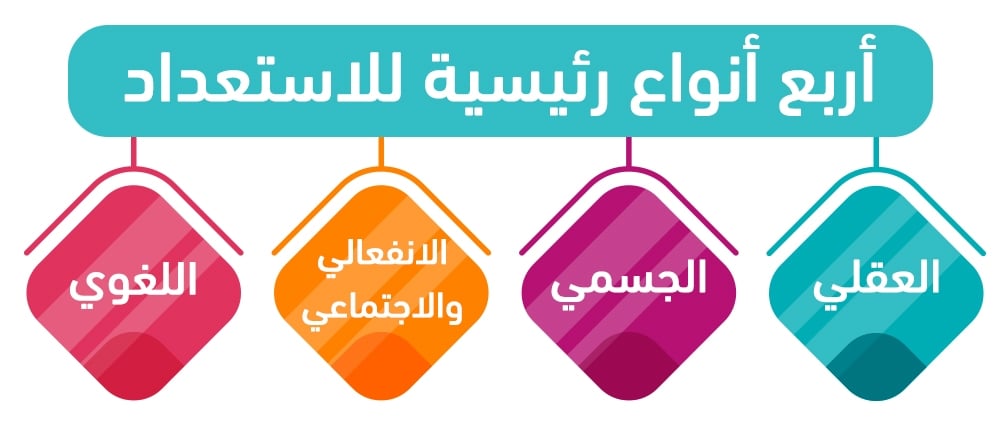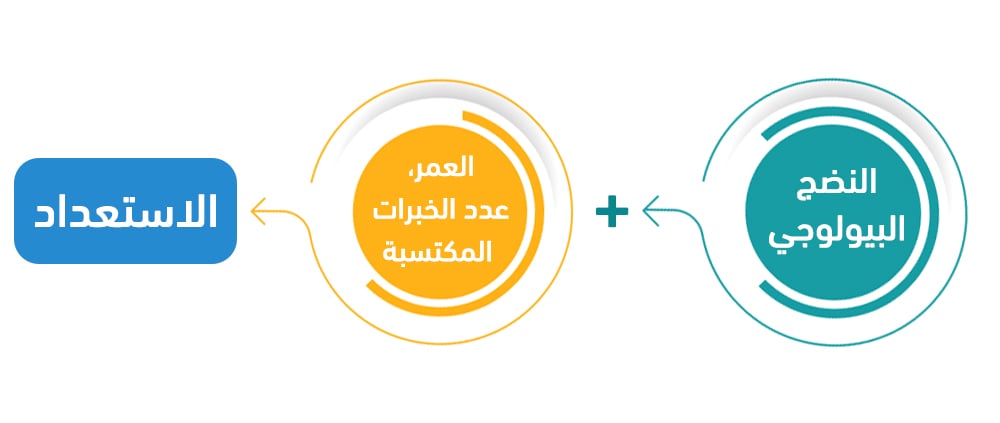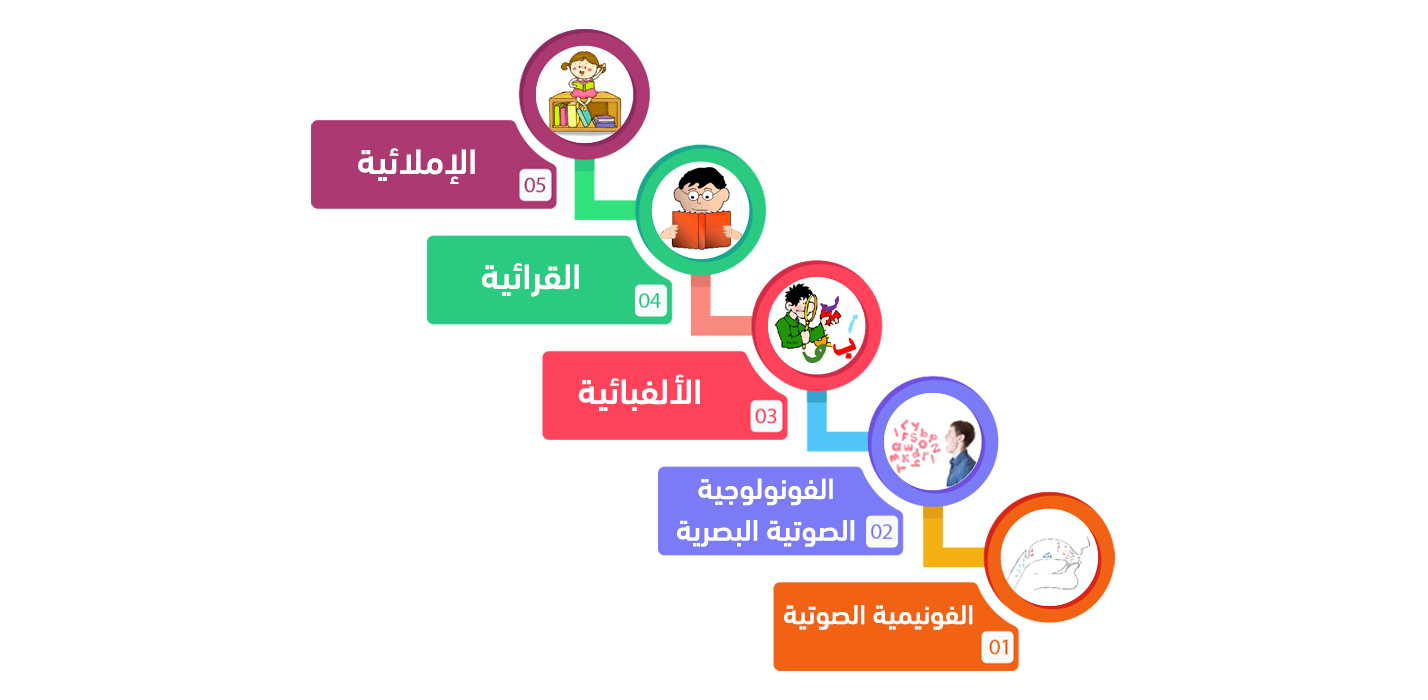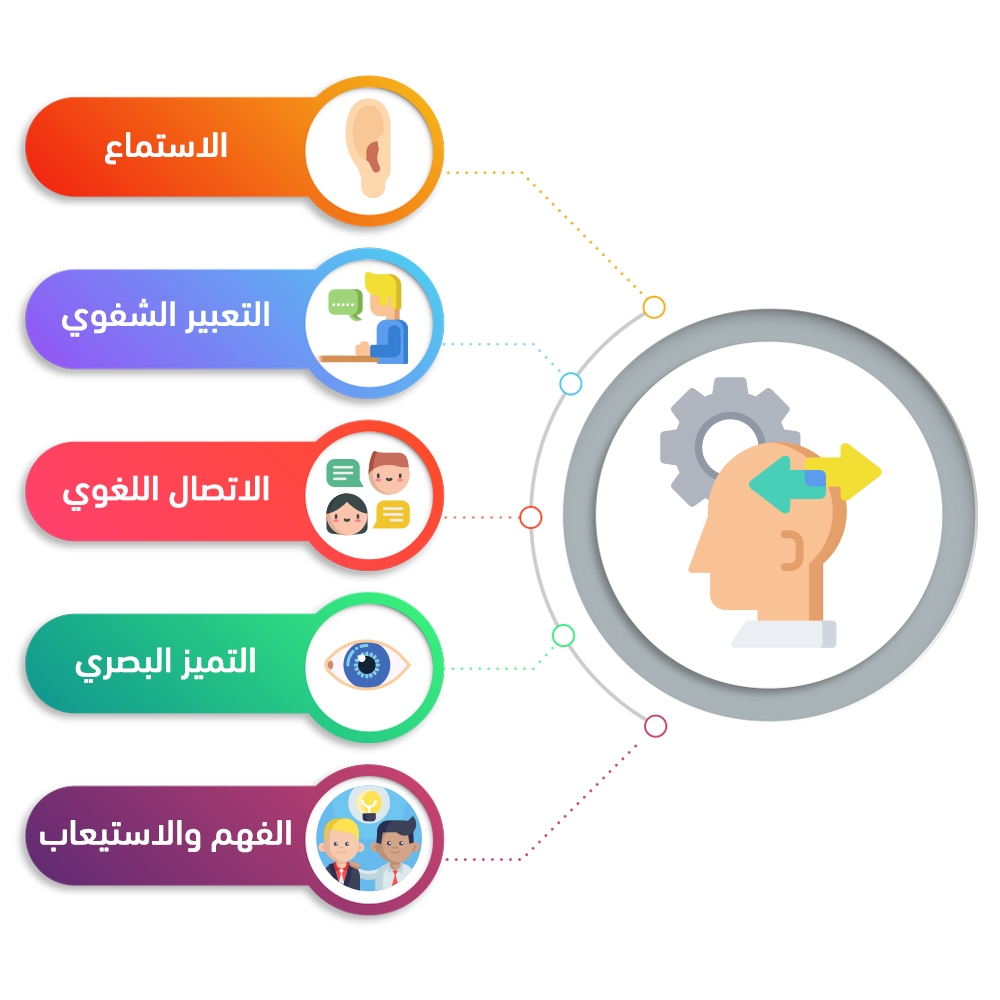- How does early childhood education play an effective and real role in building language skills and preparing children for the reading stage?
- What is the most important first step for proper language development in the pre-reading stage?
Early childhood is the threshold for a child's entry into the world of academic education. Therefore, early childhood is the foundation for sound education and learning, as it is where the roots of language, knowledge, behavior, emotions, and early social skills are formed.
Therefore, the role of nurseries and learning centers is not limited to teaching letters and practicing writing, but rather their actual and real role is to support and measure children's development in a comprehensive manner, achieving a level of maturity and readiness for learning. Therefore, careful consideration and careful thought must be taken in selecting the programs offered that will achieve the desired goals of preparation and equipment.

There are four main types of preparation.
If we look at a bunch of grapes or bananas, we will find that they are all the same age and picked on the same day, but some of the fruits are ripe and some are still inedible?
And so it is with children. You might find a four-year-old whose language skills are well developed and who is ready to learn to read, while another who is only six years old is having difficulty learning to read.
The process of language acquisition depends largely on biological maturity, as it requires the integrity of the hearing and speech systems, an important role that kindergartens must play. Language development also requires the appropriate development of the brain regions responsible for speech, which control the mechanisms for linking sounds and ideas, and speech production, which requires a highly complex coordination between breathing movements, lip movements, tongue, mouth, vocal cords, and brain regions important for speech.

The experiences that children have been exposed to.
To raise a child's level of readiness for reading, four main types of readiness must be present :
1. Mental : It enables the child to acquire simple knowledge and understand simple concepts such as largest and smallest directions and dimensions, and a degree of cognitive development that includes the level of maturity in cognitive processes, perception, and thinking such as observation, classification, matching, analysis, understanding, and memory. Cognitive maturity: It includes (stages of mental development - mental processes - cognitive development).
2. Physical : Includes the integrity of the senses and the visual, auditory, and speech systems. Social and emotional adaptation: Includes self-control, self-reliance, the desire to follow instructions, the ability to pay attention and concentrate for a sufficient period of time, and the ability to work with others.
3. Emotional and Social: Feeling accepted, adapting, and interacting with the environment and peers, forming relationships without anxiety or fear, and possessing a sense of initiative. Cognitive- Sensitive Maturity : Includes other motor skills and various synergies. Appropriate background and experiences include knowing numbers, the names of common objects, and the concept of time and space.
4. Linguistic : the ability to communicate, express oneself, use vocabulary correctly, phonemic awareness, and knowledge of sounds.
Let's take linguistic readiness as an example. Focusing on memorization and indoctrinating information does not build a solid linguistic and cognitive foundation, because memorizing letters directly is a form of injustice to the child and a waste of his time. It is more appropriate to provide opportunities to practice the classical language to remove the alienation between it and the child's hearing and perceptions, as it is the language of learning in elementary school, and hearing it, pronouncing it, and interacting with it is much more important than learning the letters and writing them.
Research has shown that there are a number of necessary pre-preparation skills that are considered more important than learning the alphabet and must proceed gradually, one stage before the other and successively, to build the ladder of linguistic development without any difficulties or gaps regarding reading and linguistic development. Specifically, the process of preparing and forming reading readiness requires the child to acquire some basic skills before starting to teach letters and words. Studies have proven that pressuring a child to learn to write letters and words and read them at an early stage and before reaching sufficient linguistic and cognitive maturity is a major factor that leads to painful psychological experiences that create negative attitudes in the child towards language and perhaps education as a whole.
Educational psychology experts and philosophers agree that children practice the art of listening before any other language skill, as this skill is the foundation of receiving and learning. If a child listens well, he will speak better and learn more effectively.

There is no doubt that focusing on encouraging the child to read stories, solve verbal puzzles, play with words and rhyme them, talk with others, and ask about their interests will instill confidence in their abilities and alleviate learning difficulties related to phonological awareness and language skills. Moreover, these processes are much more important than wasting the child’s time and high energy learning the alphabet and writing it and learning what they should learn in elementary school, not kindergarten. In other words, mastering the spoken language leads to learning to read and then write more easily.
Experts have confirmed the assessment of the level of children around the world in understanding and mastering the language, including a study discussed by Dr. Suhair Al-Sakri. This study proved that children in the Western world have a much greater chance of mastering and being proficient in the language than Arab children, because they speak and hear the same language. Therefore, their vocabulary is extensive and strong because it is unified, and it exceeds 16,000 words before the child enters primary school, while the vocabulary of the Arab child before enrolling in school does not exceed 3,000 colloquial words, and the share of the classical language that the child does not hear in his daily life does not exceed 600 words, with the exception of those who have memorized the Quran.
In 2004/2005, the Ministry of Education in Amman conducted a study to measure reading weakness among students in the first cycle of basic education. This study concluded that reading errors were common among students, ranging from 63% to 91%, which are high rates. The study also revealed that students had poor mastery of a number of reading comprehension skills, such as understanding vocabulary, classifying objects, arranging ideas, distinguishing styles, and the meanings of concepts and terms. There were 13 out of 14 skills in which mastery was below the required level. The sample members of this study believed that the most important reasons for reading weakness among students in the first cycle of basic education were the students’ poor level of basic reading skills, the students’ weak reading readiness, and the students’ lack of linguistic wealth.
By reviewing the results of this study and other international and local studies, such as the World Bank study with the Ministry of Education in Oman, it becomes clear how seriously children are prepared before they enter the first grade, resulting in continued weakness in subsequent years. This underscores the need to pay serious attention to the pre-school education stage so that students are well prepared for school enrollment.
The reading preparation process includes not only learning the alphabet, but also developing listening skills, oral expression, linguistic communication, visual discrimination, comprehension and understanding.

Let us agree that the process of preparing a child to read and even write does not begin with teaching him the letters of the alphabet and memorizing their shapes. 70% of language skills are acquired through hearing. Therefore, the alphabet is certainly not the first step. Rather, the true beginning is the formation of language development skills with its four main pillars:
Understanding and comprehension
· Building vocabulary and using words in the correct place.
· Understand the meaning of the words.
· Speaking, communicating and expressing yourself in useful sentences.
· Narrating events in a sequential manner.
· Predicting simple events.
· Choose words that describe the action or event.
· Describe the images in appropriate language.
· Distinguishing between reality and fantasy.
phonemic awareness
· Focusing hearing for multiple purposes, distinguishing sound sources, and classifying audible objects.
· Producing sounds, words, and sentences correctly.
· Knowing the exits of small sounds (phonemes).
· Knowing and pronouncing the correct sounds of at least ten letters.
· Knowing rhyming words, distinguishing intonation, and producing it.
· Alliteration between words in terms of the beginning and ending sound.
· Combining sounds to form words and analyzing words into sounds and syllables.
· Deleting, replacing, or adding a sound at the beginning or end of a word.
phonological awareness
· Distinguish between picture and word.
· Read and understand symbols, instructions, and trademarks.
· Knowing long and short words.
· Calculate the number of letters in a word in the form.
· Knowing the number of words in a sentence.
· Knowing the word (its head, its end, and its tail).
· Distinguish between a word that has meaning and one that does not.
· Separate words into syllables with the shape (football).
· Note the details.
Arabic linguistic awareness
· Knowing the Arabic writing path from right to left.
· Knowing ten letters, their shape and sound, without naming them.
· Use of feminine and masculine forms.
· Identify singular, dual and plural.
· Use of demonstrative pronouns.
· Use of pronouns and adverbs.
· Knowing opposites and inverses.
· Knowing a number of synonyms.
